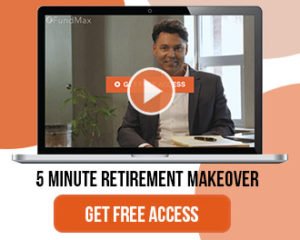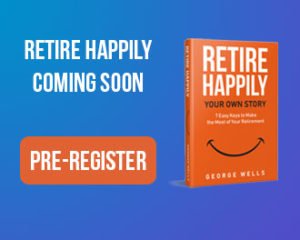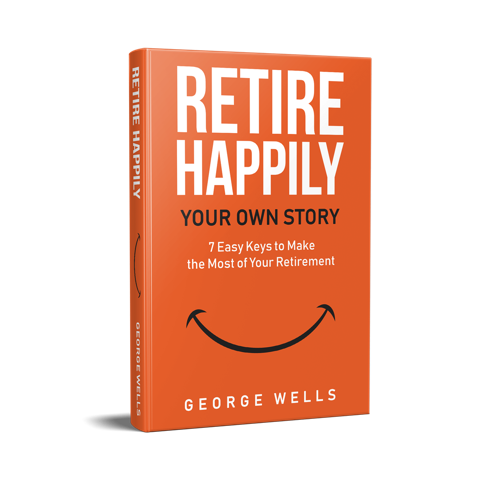We have collected a list of Myths and Misconceptions that relate to Estate Planning with a Law Firm. Use these insights to help know what questions you should be asking your Estate Planning Attorney about possible solutions. There are many different misconceptions we and other Estate Planning professionals see from estate planning probate to Responsibilities of a Trustee.
How to Properly Customize Your Estate Plan Forms
- One of the biggest misconceptions about estate planning is that there is a magic form that applies to everyone’s situation that you can download from the internet. People think they can find such a form, fill it out quickly, sign their name, get it notarized and then everyone’s happy. Maybe generic forms like that do exist. But it is a risk to use them. Your form must be customized to address the unique aspects of your family’s situation, such as your children’s ages and their ability or likelihood of being responsible with assets.
- If you have an adult child whose profession has a likely exposure to lawsuits, you want to make special provisions in your estate plan. You also want to protect your assets from divorce. You can specify provisions regarding a surviving spouse’s ability to remarry. Factors like this might not apply to you right now, but we’re going through this so you will think about some of the scenarios you wouldn’t think about otherwise.
Assets and Beneficiary Planning
Estate plans are often three inches thick because the attorneys who specialize in estate planning have included provisions to cover the unique nature of each client’s situation. They want to make sure every potential scenario is covered. As you go through life transitions, what you want to happen is likely going to be different from what other people want. You are unique. Everyone is different.
Deciding Who Gets What in Your Estate Plan
As you plan how to distribute your assets, you might decide you want certain individuals to get more money or unique belongings that other people will not get. There are ways to set up your estate plan so that no one needs to know exactly who’s getting what. With a boilerplate trust or estate plan, typically one of the first requirements is that all your heirs will receive a document that explains where everything is, and the trustee is responsible for distributing your stuff. You don’t have to go to an attorney to get this set up. I would never do that on my own. We are not attorneys, but we will answer your questions to the extent that we can. We can refer you to an attorney in your area or state.

Is an Estate Plan Just for the Rich?
No. The biggest misconception is that estate planning is for people who are rich. That isn’t true. Estate planning is a way for anyone, regardless of their level of wealth, to take care of themselves, the people they care about and their stuff, their possessions.
The Easy Estate Planning Form?
Another misconception about estate planning is that there are one-size-fits-all wills or trusts available online that people can fill out easily. Everyone’s situation is unique, and estate planning really depends on where you are at in life. People who are in their late twenties or early thirties, married with young children, will be concerned about taking care of their children if something happens to the parents while they’re young. People who are in their fifties, who are at the top of their earning power and are accumulating assets, will have a different type of estate plan. Their children are probably adults now and have their own families. Some older people who have been diagnosed with dementia will be worried about how to pay for long-term care and who will take care of their assets and estate for them over a long period of time. So there is no “one size fits all” estate plan.

What Is a Power of Attorney and What Are the Biggest Fears?
- A power of attorney is another important estate-planning document people prepare. It is designed primarily to manage your assets if you become incapacitated. You appoint someone to sign your name and make financial decisions for you if you are unable to.
- People express a few fears people about powers of attorney. For example, they worry if the person they appoint will know what to do because that person has never handled someone else’s finances or money. Another fear many people have is whether or not their bank or financial institution will accept the power of attorney. The power of attorney is a very powerful document. It appoints someone to handle your assets just like you would. That person could withdraw all your money from the bank. Banks and financial institutions are often wary about these documents and want to make sure they are actually valid when someone comes in with them.
- Let’s say you assign your son to be your power of attorney in 2018 when you’re doing well. Twenty years later, your son goes to the bank and says, “We need to withdraw half the account” for some reason. The banker will probably wonder if the 20-year-old power of attorney is still in effect. Did you create a different power of attorney document during that time, or amend the original version? Did you revoke it, and did this person create this one on his computer? It’s pretty easy to make documents that look official. It is in your best interest for your banker and tellers to be cautious like that.
Do I Need a Power of Attorney with All the Challenges and Fears?
Despite the challenges and fears you might have about assigning a power of attorney, it is important that you do so. The problems caused by not having a power of attorney are often worse than any issues that would come up if you have one. If a power of attorney is not in place when you die, your state has a solution for this.
It is very common for people to be unable to make their own decisions due to dementia or physical illness. Over the years, states have developed a legal process called conservatorship. If my father becomes unable to make his own financial decisions and I do not have power of attorney for him, I would have to go to court and file a conservatorship, which is an ongoing legal process. First, someone has to file the paperwork to start the conservatorship. The paperwork has to be sent to various family members. Everyone who the law defines as an interested party must receive notice so they can come forward and state if they feel the person is or isn’t incapacitated or if they feel they should be the conservator instead of the person who’s starting the process.
Then it is up to a judge to decide whom to appoint as the conservator. The person, the judge, appoints for my father might not be the same person my father would have appointed to make his financial decisions. If you have a power of attorney, you can make all those decisions in advance. Another drawback to a conservatorship is that it’s can take a long time to be completed. It could continue until the person passes away or recovers, in which case he or she would have to go back and prove to the judge that he or she is no longer incapacitated. As long as the conservatorship is in place, the person who is named as the conservator is required to prepare an annual report. Conservators have to show every penny that he or she received from the estate. They also have to document how that money was spent, down to the penny. So these documents are often complicated to produce. A hearing has to be held to approve them, so it can be expensive, too. People usually need the help of an attorney to navigate this process.

Misconceptions About “One Size Fits All” Estate Planning
We mentioned earlier that a common misconception people have about elder law or estate planning is that “one size fits all” — that one boilerplate document can fit everyone’s situation. Another major misconception is that people don’t need an estate plan. People know that they can designate someone as a beneficiary to their bank account, or they will add their daughter’s name to their bank account so she can pay their bills if something happens to them. But that’s a very incomplete attempt at estate planning because that person can handle just that particular account.
An Estate Plan You Don’t Need?
There are two situations we see in which people have an estate plan they don’t need.
- First, they might have an estate plan that is more elaborate than they need, based on their current situation and maybe due to changes in tax laws. They have an estate plan that was overbuilt for estate taxes, and that’s no longer their problem.
- Second, some people have an estate plan that is too simple. What they have in place is outdated and doesn’t address the issues or needs they have now. They need something more elaborate than what they have.
Should I Be Afraid of Probate?
Members of the public are often afraid of probate, but attorneys are not. It’s a way they make money over time, helping people settle their states when they have failed to plan in advance. If they had planned in advance, often they could have settled their estate much more easily and less expensively. Helping people settle their estates is not the most efficient plan if they have a very small estate. There are simple ways to avoid probate. One drawback to probate is that it’s the state’s solution to the problem of people being unable to take care of themselves or passing away without having made plans to transfer their property to someone else.
What Are the Responsibilities of a Trustee?
When you have an estate plan, are there problems you need to be aware of? Yes.
- One is when you’ve appointed someone to make decisions for you — maybe it’s your successor trustee or your adult child — and that person has never been a trustee before. He or she has no experience in settling someone’s estate, so a lot of court litigation might be going on in the probate court. This can be true even if you have an estate plan that was designed to avoid the probate court process because the person you appointed to handle things for you didn’t know what he or she was supposed to do.
- This can be a problem in a couple of areas. Sometimes the successor trustee or agent under the power of attorney doesn’t have the right disposition, personality or demeanor to do this job. This responsibility is imposed on this person, and he or she is expected to act as a fiduciary to act in your best interest on behalf of you, your estate and your heirs if you die.
- Sometimes we see that when people are appointed in these roles, they think they’re the boss, and anything they say goes. But that’s not really the case. When you go into a bank, walk up to a teller and say, “I want to withdraw $500 from my account,” that person is supposed to do that for you. A successor trustee is supposed to be fair to the other beneficiaries, keep them informed and make prudent decisions. Sometimes trustees don’t know that, and they get themselves in trouble that way. Another area where the successor trustee or someone acting on behalf of the estate can get in trouble is failing to keep the other beneficiaries informed. The law requires them to report to the other beneficiaries, so if they don’t do that, we see a lot of litigation in those situations.
Download the Retire Happily Estate Planning Book
‘The Ultimate Guide to Estate Planning‘.
This free educational ebook explains estate planning as simple and complete a possible.





